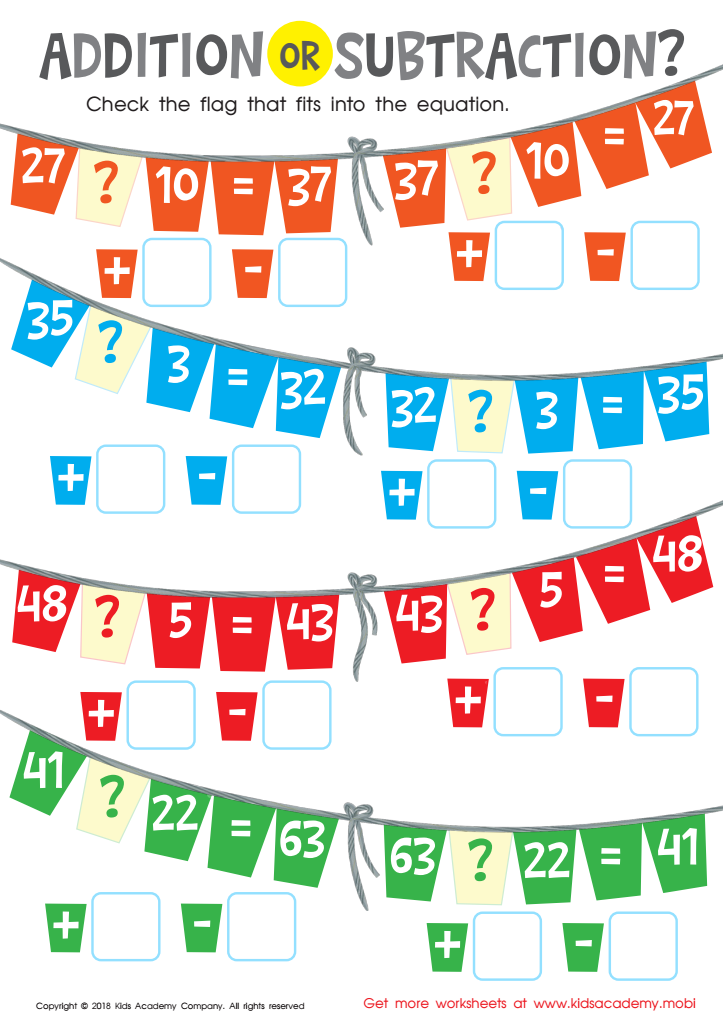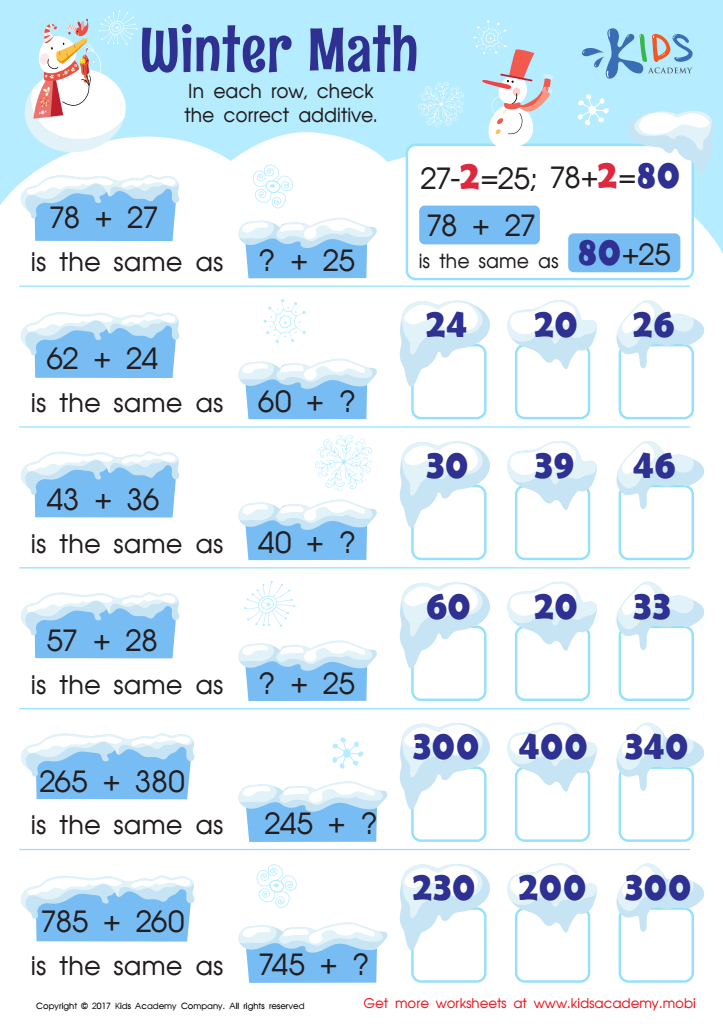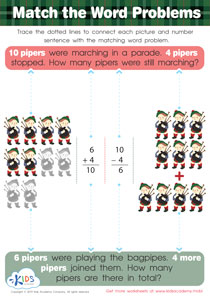Mathematical reasoning Normal Addition Worksheets for Ages 5-8
4 filtered results
-
From - To
Enhance your child's mathematical reasoning with our Normal Addition Worksheets for Ages 5-8. These printable worksheets are designed to build a solid foundation in addition, encourage critical thinking, and improve problem-solving skills. Through engaging and age-appropriate exercises, children will confidently learn to add numbers and understand the core concepts of mathematics. Perfect for young learners, our worksheets promote learning at an individual pace, ensuring a successful and enjoyable educational experience. Visit our page to download and start nurturing your child’s math skills today! Helping children add up success, one worksheet at a time.


Tricky Problems Worksheet: Part 1


7 Continents and 7 Seas Worksheet


Addition or Subtraction? Worksheet


Free Addition Worksheet
Mathematical reasoning through exercises like normal addition is essential for children ages 5-8 because it lays the foundation for critical cognitive development that supports future learning. At this early stage, children are establishing fundamental skills that they will build on as they progress through their education.
Firstly, normal addition helps children understand basic number concepts and relationships, which is crucial as they move on to more complex mathematical operations. When children grasp addition, they learn about quantities, improve their ability to compare numbers, and understand patterns—a core aspect of math and logical reasoning.
Furthermore, introducing children to addition at a young age enhances their problem-solving skills. By having to find the sum of two numbers, children practice analytical thinking, a skill that extends beyond math into other academic areas and real-life situations.
Additionally, early exposure to addition promotes confidence around math. Children who achieve small successes in elementary math feel competent and ready to tackle new challenges, fostering a positive attitude towards learning. This self-assurance could counteract math anxiety, a common issue that hinders many students' performance in later years.
Overall, focusing on normal addition and mathematical reasoning at ages 5-8 helps establish a strong mathematical foundation, encourages logical thinking and problem-solving, and boosts confidence—all critical components for a child’s long-term academic success and personal development.
 Assign to My Students
Assign to My Students
















